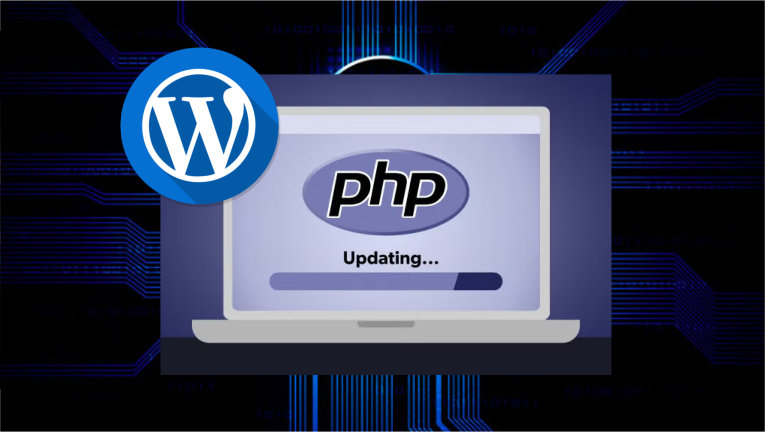cPanel for Web Hosting: An In-Depth Overview
cPanel is one of the most widely used web hosting control panels, designed to provide website owners and hosting administrators with an intuitive, user-friendly interface for managing their hosting services. Whether you’re hosting on a shared server, VPS (Virtual Private Server), or dedicated server, cPanel simplifies the management of web hosting tasks that otherwise might require technical expertise. It allows users to manage everything from websites and domains to databases and emails, making it an essential tool for individuals and businesses alike.
Below is a more detailed look at the core features of cPanel and how they help users effectively manage their hosting environments.
1. Dashboard: The Command Center for Hosting Management
- User-Friendly Interface: The cPanel dashboard is the central hub for managing your web hosting account. It is organized with icons and sections, making it easy to find and access the tools and features you need. The layout is designed to simplify tasks and reduce the complexity of managing your hosting services, especially for beginners.
- Quick Access: Each section is logically categorized, allowing for quick navigation between different areas like file management, domain settings, and email configuration.
2. Domain Management: Full Control Over Your Domain Settings
- Add/Edit Domains: cPanel enables users to easily add new domains or subdomains and make adjustments as necessary. You can also manage DNS settings for these domains.
- Redirects: Set up domain redirects with ease, forwarding visitors from one URL to another (e.g., from a non-www version to the www version of your website).
- DNS Zone Editor: This tool allows for the management of your domain’s DNS records (like A records, MX records, CNAMEs), giving you complete control over how your domain interacts with other services.
3. Email Management: Customize Your Communication Settings
- Email Accounts: Easily create custom email addresses for your domain (e.g., contact@yourdomain.com), and manage existing ones.
- Email Forwarders: Automatically forward emails from one address to another, ensuring you never miss an important message.
- Autoresponders: Set up automated email replies to notify others when you’re unavailable, such as during holidays or vacations.
- Spam Filters: Enhance security and user experience by blocking unwanted emails and controlling spam settings.
4. File Management: Organize, Upload, and Secure Your Website Files
- File Manager: This built-in file manager allows users to upload, delete, and manage their website files without needing an external FTP client. It simplifies the process of maintaining your website’s content directly through the cPanel interface.
- FTP Accounts: Set up FTP (File Transfer Protocol) accounts to manage your files via third-party software, which can be useful for larger file transfers or advanced configurations.
- Backup and Restore: The backup tools in cPanel let you create backups of your entire website or individual components (e.g., files, databases), which can be restored at any time.
5. Database Management: Efficient Handling of Your Databases
- MySQL Databases: cPanel makes it easy to create, manage, and delete MySQL databases, essential for dynamic websites running on platforms like WordPress, Joomla, and Magento.
- phpMyAdmin: phpMyAdmin is a powerful, web-based tool integrated into cPanel that lets users manage MySQL databases through an intuitive graphical interface, without needing to write complex SQL queries.
- Database Backups: Backup your databases and restore them quickly in case of issues, ensuring data integrity and security.
6. Software and App Installation: Simplify Your Website Development
- Softaculous Auto Installer: This tool lets users easily install popular web applications (e.g., WordPress, Joomla, Drupal, Magento) in just a few clicks, streamlining the process of building and managing a website.
- One-Click Installations: cPanel offers one-click installations for a wide variety of content management systems (CMS) and other software, making website setup faster and more efficient.
7. Security Features: Protect Your Website and Data
- SSL/TLS Manager: Easily manage SSL certificates to enable secure HTTPS connections, ensuring that user data is protected when interacting with your website.
- IP Blocker: Block specific IP addresses or entire IP ranges from accessing your website, protecting against unwanted traffic and potential security threats.
- Leech Protect: This feature helps prevent unauthorized users from bypassing password protection on restricted areas of your site, such as private content or admin areas.
8. Metrics and Logs: Track Performance and Troubleshoot Issues
- Website Analytics: Tools like Awstats and Webalizer give detailed insights into your website’s traffic, including visitor stats, page views, and referral sources.
- Error Log: Access error logs to identify server or application issues, helping you troubleshoot problems efficiently.
- Bandwidth Monitoring: Monitor your bandwidth usage to ensure you’re not exceeding your hosting plan’s limits and identify potential areas for optimization.
9. Software Updates and Settings: Keep Everything Running Smoothly
- PHP Version Selector: Choose and manage the PHP version for your website to ensure compatibility with web applications, as different applications may require different PHP versions.
- Cron Jobs: Automate routine tasks on your website by scheduling scripts to run at specific times (e.g., database backups, email notifications, or content updates).
10. Backup Management: Safeguard Your Website’s Data
- Backup Wizard: This easy-to-use tool simplifies the process of creating backups, allowing you to back up your entire website or specific files, databases, and email accounts.
- Full/Partial Backups: You have the option to back up your entire hosting account or select specific parts of it, giving you flexibility depending on your needs.
11. Resource Usage: Keep Track of Your Hosting Resources
- CPU and Memory Usage: Track the resource consumption of your hosting account, allowing you to identify potential performance issues before they become problematic.
- Disk Space Usage: Monitor your website’s disk space to ensure you are not exceeding the limits of your hosting plan.
12. Multi-Language Support: Accessibility for Global Users
cPanel supports multiple languages, making it accessible for users worldwide and breaking down language barriers for those managing websites in different regions.
13. Software Management: Tailor Your Hosting Environment
- PHP Extensions: Easily add or remove PHP extensions based on the specific needs of your website, such as enabling support for additional libraries or functionalities.
14. Multi-Account Management (WHM): For Resellers and Administrators
- Web Host Manager (WHM): For hosting resellers and administrators, WHM is paired with cPanel to offer advanced management features. WHM lets you manage multiple cPanel accounts, including creating new accounts, managing permissions, and handling billing processes.
Conclusion: Why cPanel is a Top Choice for Web Hosting Management
cPanel is a comprehensive web hosting control panel that streamlines and simplifies the management of websites



